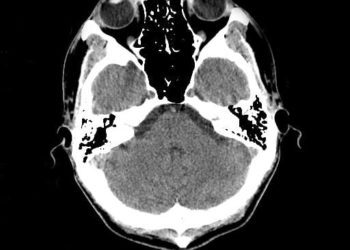Predicting mortality among septic patients presenting to the emergency department–a cross sectional analysis using machine learning
1. In a large cohort from Sweden, six variables focused on symptoms, observations, and mode of arrival to the hospital, were found to be predictive of 7-day and 30-day mortality in septic patients.
Evidence Rating Level: 3 (Average)
Sepsis is associated with substantial morbidity and mortality worldwide. There are various scoring tools to predict sepsis mortality in the emergency department. However, these tools are based off vital signs and do not include patient presentation characteristics. This cross-sectional study sought to identify such variables predictive of 7-day and 30-day mortality amongst septic patients in the emergency department. The study included 445 septic patients (median age, 73 years; 52.6% men). It found that the six most important variables of predicting 7-day mortality in descending order were fever, abnormal verbal response, low oxygen saturation, arrival by emergency medical services, abnormal behaviour or level of consciousness, and chills. The study demonstrated that these six variables had a sensitivity of 0.84 (CI 95%, 0.78–0.89), specificity of 0.67 (CI 95%, 0.64–0.70), positive predictive value of 0.31 (CI 95%, 0.28–0.33) and negative predictive value of 0.96 (CI 95%, 0.95–0.97), collectively. For 30-day mortality, the six most important predictors in descending order were abnormal verbal response, fever, chills, arrival by emergency medical services, low oxygen saturation, and breathing difficulties. These variables demonstrated a sensitivity of 0.87 (CI 95%, 0.81–0.93), specificity of 0.64 (CI 95%, 0.61–0.67), positive predictive value of 0.41 (CI 95%, 0.39–0.44) and negative predictive value of 0.95 (CI 95%, 0.92–0.97). Overall, the study concluded that such variables would be important to include in future prediction tools of mortality amongst septic patients. However, these results need to be further validated in other cohorts to evaluate their generalizability.
Click to read the study in BMC Emergency Medicine
Image: PD
©2021 2 Minute Medicine, Inc. All rights reserved. No works may be reproduced without expressed written consent from 2 Minute Medicine, Inc. Inquire about licensing here. No article should be construed as medical advice and is not intended as such by the authors or by 2 Minute Medicine, Inc.









